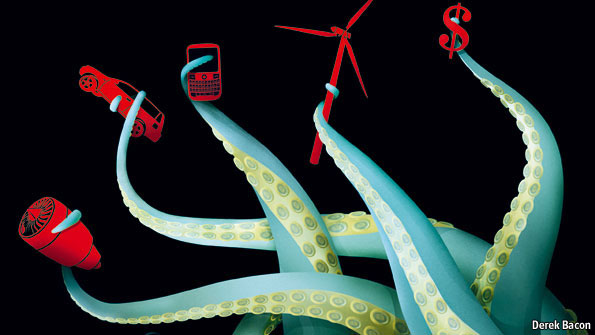
Economist editorial and briefing.
The pertinent reminder of this foolishness:
In the 1980s, the last time industrial policy was in fashion, the West was in awe of Japan and its inexorable rise; now it is in awe of China and its state capitalism.
Deja voodoo
Yet the overwhelming reason for China's miracle is that the state released its stifling grip and opened the country to private enterprise and to the world . . . Part-privatization and competition created in a short time what decades of industrial policy had failed to do.
In the rich world, meanwhile, the record shows, again and again, that industrial policy doesn't work . . . However, many new justifications are invented for the government to pick winners, and coddle losers, it will remain a bad old idea.
And the kicker:
Thanks to globalization and the rise of the information economy, new ideas move to market faster than ever before. No bureaucrat could have predicted the success of Nestle's Nespresso coffee-capsule system--just as none foresaw that utility vehicles, vacuum cleaners and tufted carpets . . . would have been some of America's fastest-growing industries in the 1970s.
And the original sin?
Officials ignore the potential for innovation in consumer products or services and get seduced by the hype of voguish high-tech sectors.
Much the story of our venture-capitalist-in-chief, Obama, and green technologies. Now we race China to see who can sink more public money on that one, because government investments are the BEST WAY TO GO!
And please, do not cite DARPA's internet as the great counter. Unless you think only the government could come up with that, or that Al Gore invented it, or that it took off primarily because it was kept in government hands instead of turned loose to the public.
In the briefing, four reasons are cited for the current vogue:
- The weakness of the world economy (in the West, that is)
- The desire of Old Core economies to rebalance from too many imports
- Emergency use of industrial policy in response to the crisis has whetted the public's appetite for more, and
- The West is mindlessly aping the Chinese, whose "genius" consists of extensive growth and nothing more.
What a world!
